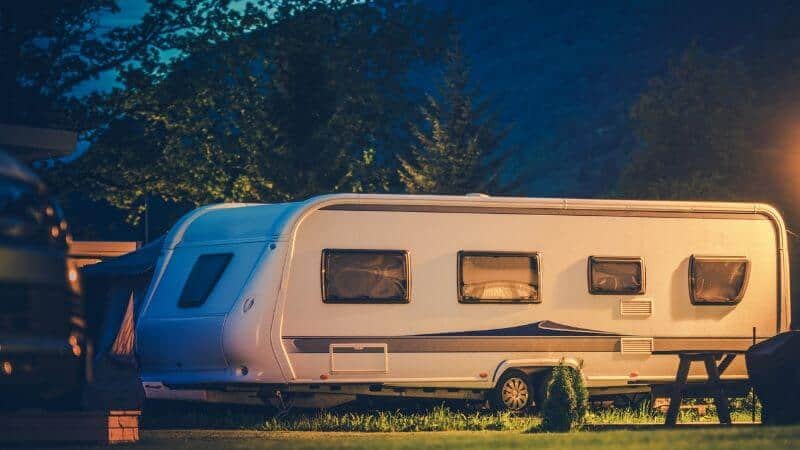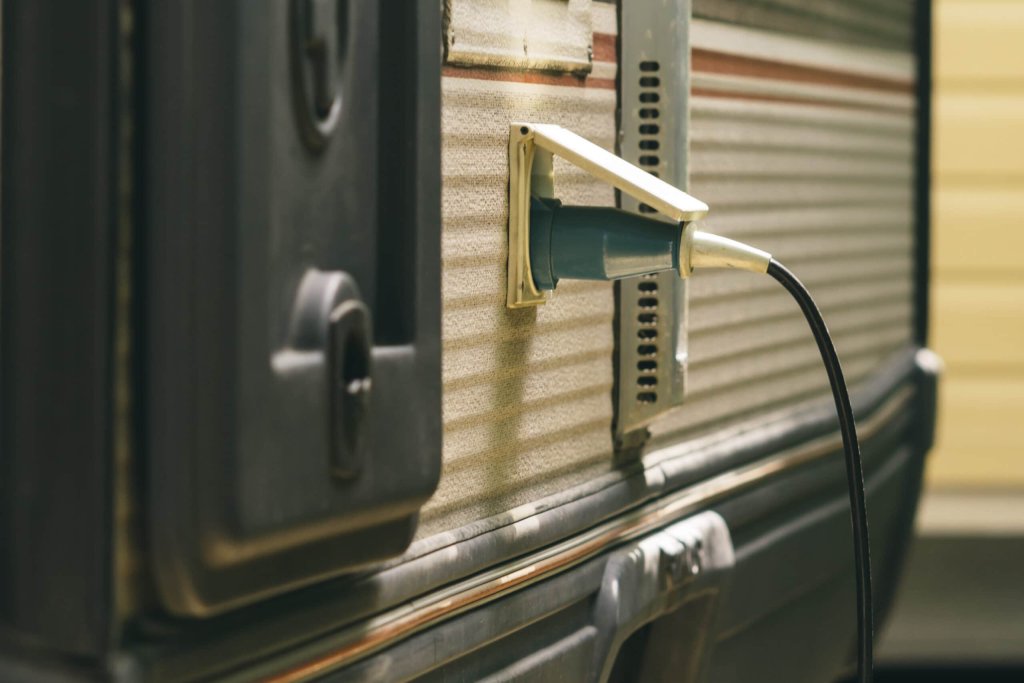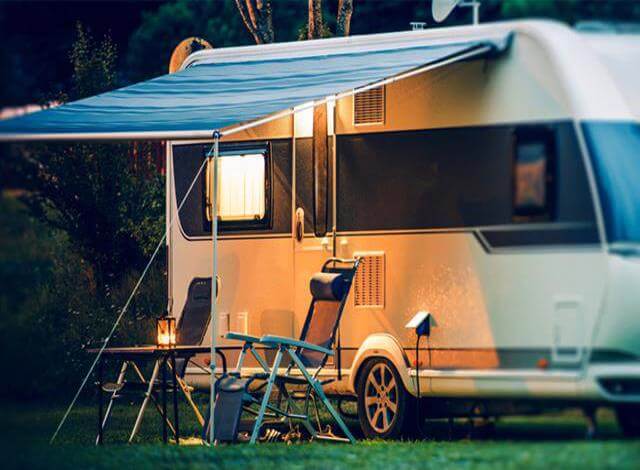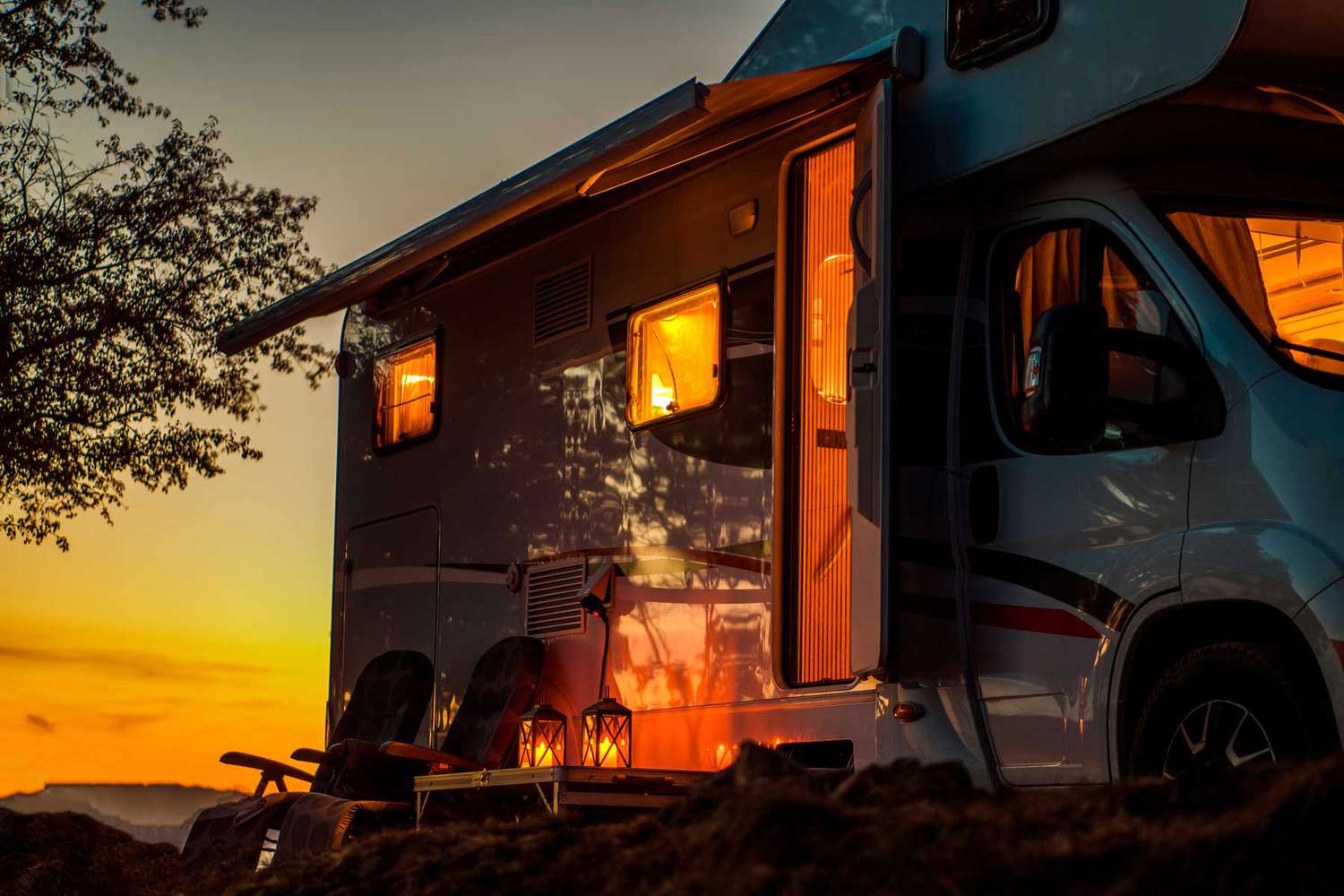Recreational vehicles, or RVs, allow you to travel wherever you want, whenever you want, without inhibitions. However, as fun as it sounds, traveling in an RV also comes with several challenges. Storage issues, medical emergencies, and weather changes are some of the prominent ones.
Some of these can be solved with modern solutions. For instance, you can elevate the accessibility by using a portable RV deck. Or you can use multifunctional storage solutions to increase space.
As an RV user, one of the most nagging questions is whether or not you should keep your RV plugged in when not in use. Are you wondering the same? Read on to find out the answer!
Should You Leave Your RV Plugged In?

If your RV is a rental for short-term use, there’s no trouble in leaving it plugged in 24/7, even when not in use. Modern RVs usually come with converters that gradually slow the charging of the batteries after you top off the batteries.
Hence, keeping them plugged in always doesn’t create a problem. On the other hand, leaving an RV plugged in when in long-term use can cause problems with the battery. Typically, the power a battery loses over time depends on several factors, such as temperature, weather conditions, and maintenance.
Then, should you leave your RV plugged in? The answer depends on the maintenance of your battery. If your RV has smart chargers, converters, and facilities to turn the charging systems to a safe mode, you can trust to keep the batteries safe. One major aspect to consider is the age of your RV. Older models generally lack the systems to keep the battery safe if plugged in too long.
However, newer RVs have modern converters and similar systems that help you keep the maintenance up. Despite this, does your RV really need to stay plugged in? Check out some of the top reasons why it might be necessary.
Reasons to Keep Your RV Plugged In

Before concluding whether it’s wise to keep your vehicle plugged in, let’s explore why the need may come to be. There are several reasons why you may have to plug in your RV the whole time. Here are some of them.
- Living full-time: If you live full-time in your RV, you might need to keep it plugged in all the time, even when not on the road or camping.
- Refrigeration: You can use your RV for extra storage space along with your home refrigerator, which must be plugged in when not in use.
- Warm Interiors: Staying in an area with colder temperatures may compel you to keep the heating system and thermostats switched on.
- Saving your batteries: It often costs more to repair or exchange damaged batteries than to keep them running the whole time.
Disadvantages of Keeping an RV Plugged In

While it might be a wise idea, plugging in your RV when not in use has a few disadvantages as well. Check out the following reasons to learn why it might burden you.
- Cost: One of the most significant disadvantages is the added cost. An RV plugged in constantly equates to high charges of electricity. Often, this includes the cost of running electrical appliances as well.
- Maintenance: The appliances and objects in an RV aren’t typically meant for full-time use. This means that you might need to expend more on their maintenance, cost of operation, and general repair.
- Extreme Temperatures: High cold weather can cause damage to the batteries even if they’re in use. Hence, keeping the RV plugged in may not always be an ideal solution to secure your batteries.
- Fires & Damages: It is easier to resolve damages or take care of an electrical fire if you’re on site. However, if your RV is plugged in when unused, the chances of a fire spreading rapidly are quite high.
Alternatives to Keeping Your RV Plugged In

Depending on our recommendations and information, you may decide that plugging in your RV, even when not in use, is a suitable decision for you. However, there are other alternatives you can explore to escape the disadvantages. Here are some of them.
- Store the batteries: The primary issue with RVs is maintaining the batteries. Thus, instead of keeping them plugged in, you can take them out, ensure apt maintenance, and store them somewhere else until the RV is in use again.
- Consider the utility: If you use your RV as an occasional guesthouse or a place for your friends to bunk, you can consider plugging it in just the night before your guests arrive instead of all the time. This will help you save costs by a large margin.
- Cheaper options: Explore a few other options to replace all-time electricals. For instance, an absorption refrigerator that runs on propane instead of a regular one. Or an all-weather power cable that is functional at all times.
- Regular Maintenance: Ensure timely maintenance of your RV, its batteries, electrical appliances, pipes, and other systems to avoid incurring huge costs for repair. Often, you can save a lot of money merely by taking regular care of the usual wear and tear.
Parting Words
In the end, keeping an RV plugged in when not in use doesn’t have a straightforward answer, and we often need to consider many aspects before concluding. Is it an older model that lacks the new age systems?
Then, the RV may not be equipped to stay plugged in all the time and cause damage due to leakage of the batteries or overcharging. On the contrary, a new model will have the latest tech, modern converters, and different modes to avoid overcharging.
You can also consider other alternatives to refrain from spending money to cover the cost of extra electricity. For instance, store the batteries elsewhere in moderate temperatures, install user-friendly appliances, maintain the RV regularly, and consider your utility. What is your opinion?
Do you think an RV should be plugged in 24/7? Let us know in the comments section below!

